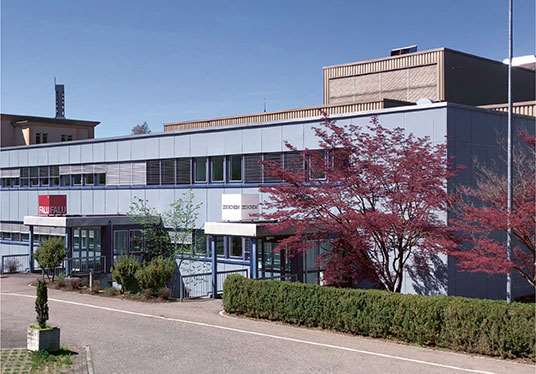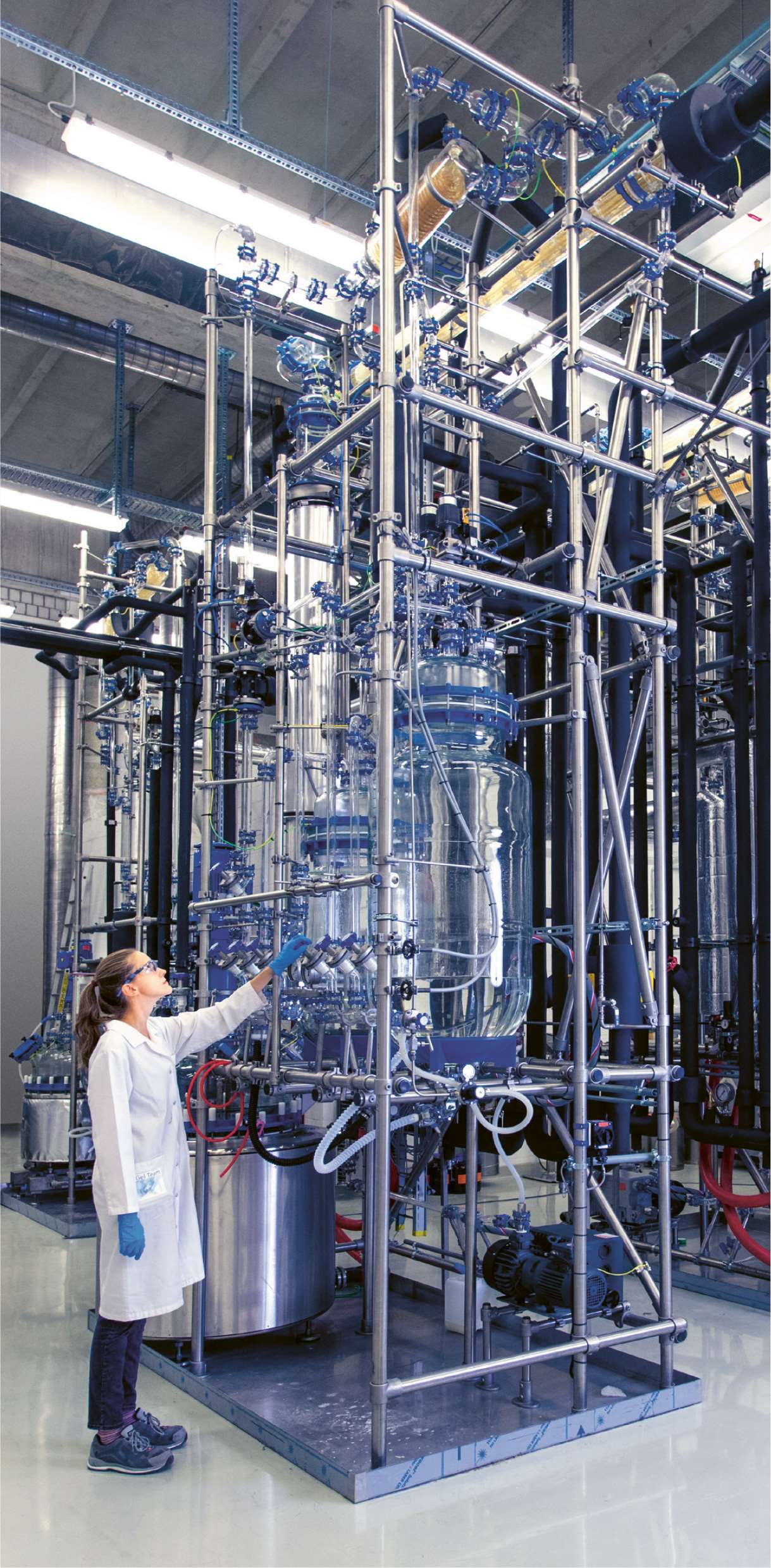Success stories
Deuterated products: a niche market with potential
The CPH Group has been manufacturing deuterated compounds for 45 years now. The operation moved to its new Rüti site in 2018. The business is expanding, too.

The new Swiss site in Rüti, Canton Zurich.

A deuterated dimethyl sulphoxide manufacturing facility.
“For many years, the production of deuterated compounds was very much a niche business for the CPH Group, with a solid but fairly limited market in the laboratory analysis field,” says Alois Waldburg-Zeil, Head of the Group’s Chemistry Division. “Today, though, we are seeing new applications opening up, and with them new growth opportunities.”
It was with its acquisition of the Elektrochemie Turgi company in 1973 that the CPH Group first incorporated a small range of deuterated products into its business, albeit in only laboratory-scale quantities. Following its transfer to the Uetikon site, the “Deutero” product segment evolved into a reliable provider of deuterated solvents, which were primarily used by laboratories and research institutes for analysis purposes. Deuterated compounds are used here in nuclear magnetic resonance (NMR) spectroscopy to determine molecular structures. They are made from “heavy water” or deuterium oxide (D2O), in which the hydrogen atom in water (H2O) is replaced with deuterium. Heavy water is extracted from regular water, in which it occurs in a tiny concentration of 0.015%.
The Chemistry Division expanded its presence in the deuterated products segment in spring 2018 with its acquisition of Armar AG, and has subsequently also enlarged its production capacities. “We now produce a wide range of deuterated solvents at our Rüti facility,” confirms Adrian Geiger of Global Business Development Deutero. “And we’re one of the world’s three leading suppliers in the field.”
In addition to their analytical use, these products have found new applications in the pharmaceuticals and the electronics fields in the past few years. These are based largely on the discovery that replacing hydrogen atoms with deuterium enhances the stability of organic compounds.
In more concrete terms, two active substances featuring deuterium compounds − one to combat Alzheimer’s and one to treat schizophrenia − are currently in Phase III clinical trials. In the electronics sector, meanwhile, the focus is on using deuterated compounds in OLED screens, where they extend the working lives of the organic LEDs. OLEDs represent a new generation of self-illuminating diodes that create brilliant colours in smartphones, TV screens and displays, and that are also finding increasing use in vehicle light technology.
